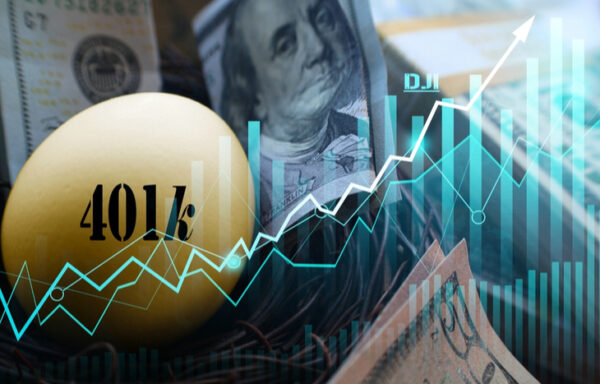What CEOs Don’t Get About Share Buybacks
Editor’s Note: Today, Contributing Analyst Jody Chudley shares some of the simplest investing advice he’s ever received, but corporate America has still failed to take it to heart.
The truth is, many of the market’s top executives get distracted chasing the wrong metrics for success.
That’s why Chief Income Strategist Marc Lichtenfeld wants investors to avoid making the same mistake.
Instead of following the faulty metric Jody describes below, take a look at Marc’s March interview in U.S. News & World Report to discover which signals will best guide your portfolio.
>Click here to read the full interview.<
– Mable Buchanan, Assistant Managing Editor
Nearly 20 years ago to this day, my beautiful soon-to-be wife and I sat down on a plane in Winnipeg, Manitoba.
Our destination?
Bermuda, where we would eventually live for eight years after landing the jobs we were headed to interview for on that very trip.
I’m sure you can understand why we were interested in escaping Manitoba winters for a few years. The average daily low temperature in Manitoba in January and February is minus 4 degrees Fahrenheit.
(That is the average. On many days, it gets much colder!)
After sitting down in my seat, I pulled out the book I was reading at the time.
It was The Warren Buffett Way by Robert Hagstrom, a book that details the business and value investing principles practiced by the great investor.
The passenger sitting in the aisle seat beside me took one look at the cover and scoffed, “What are you bothering reading that for? The stock market is so simple. You just buy low and sell high!”
He wasn’t making a joke. He really believed that investing was that easy.
Technically, he was correct, although anyone who has invested in the market knows it is much harder than that. A stock that you think is low can often go a lot lower, and a stock that you think is high might never be that low again.
Looking back, I don’t think it was a coincidence that our conversation occurred within weeks of the peak of the dot-com bubble in 2000. I would imagine that his view of how simple investing was changed shortly thereafter.
But his simple advice does have some value to it…
Has Corporate America Heard This Man’s Advice?
It frustrates me endlessly.
When the stock market and economy are both booming, publicly traded companies repurchase their shares like it is going out of style.
Over the past three years, the companies that make up the S&P 500 Index spent more than $2 trillion buying back their own shares. Over that time period, corporations were buying back so much stock that they were the single largest source of demand for American stocks.
Let me be clear – I do not have a problem with companies repurchasing their shares. In fact, when done intelligently, share repurchases are a powerful tool for creating value for shareholders.
The problem is that corporate America does not repurchase shares intelligently. Quite the opposite…
These companies are most aggressive with their buybacks at the worst possible times. Because they repurchase their stocks most aggressively when the economy and markets are booming, they make those repurchases when their stock prices are high.
Instead of buying low, corporate America buys high.
Then, when economic difficulty hits and share prices slump, these companies stop buying back shares. Sometimes the same companies that were repurchasing shares at high prices end up issuing shares at low prices after the market has tanked.
Brutal…
Goldman Sachs just released a report that indicates that share repurchases are expected to decline by 50% to $371 billion during 2020.
Companies like McDonald’s (NYSE: MCD), AT&T (NYSE: T), Nordstrom (NYSE: JWN) and all of the big banks have completely suspended their repurchase programs even though their share prices are down.
The reason these companies have to stop repurchasing shares when their shares are actually great bargains is because they spent all their money repurchasing shares when stock prices were much more expensive.
This isn’t rocket science, folks…
All that needs to happen is for companies to have a little patience when the economy is good and stock prices are high. They should let cash build and wait for a better opportunity.
Share repurchases aren’t meant to be the default option for companies to use excess cash on when they don’t know what else to do with it. Share repurchases are meant to be done opportunistically when a share price actually represents good value.
The corporate boards of these companies need to think like investors when spending cash on share repurchases. Buy when there is value, not just when cash is most available.
We can teach them this by handing them a copy of The Warren Buffett Way…
Or we can just get my seatmate on that flight out of Winnipeg 20 years ago to explain it to them.






